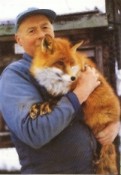The International Fur Animal Scientific Association (IFASA) was born at the IV International Scientific Congress on Fur Animal Production held in Toronto, Canada in 1988. An international organization was proposed to promote scientific investigation of all aspects of fur animal production. The major objective of IFASA was to provide the structure and a forum for interaction of scientists from all countries who are engaged in research in animal behaviour and welfare, nutrition, pathology and disease prevention, physiology and genetics. At the time the inception of IFASA, a constitution was developed, which has been amended at subsequent meetings of the membership. The constitution provides for annual board meetings and meetings of the IFASA council, comprised of representatives from each country, held in conjunction with the congresses. Funding for IFASA comes from member dues, direct support from fur animal organizations and revenue from the congresses. The annual budget is approved by the Board of Directors.
 Ten fur congresses, Oslo in 1976, Copenhagen in 1980, Versailles in 1984 and Toronto 1988 had been organized on an ad hoc basis by groups of scientists in conjunction with national fur animal associations. An important goal of IFASA was to develop a structure to ensure the continuity of the congresses. Since the inception of IFASA, Six highly successful congresses have been held, in Oslo in 1992, Warsaw in 1996, Kastoria, Greece in 2000 and Den Bosch in the Netherlands in 2004. Halifax, Canada in 2008, Copenhagen in 2012 and Helsinki in 2016. It was decided in Helsinki that the 2020 congress will be held again in Warsaw. In addition to organizing congresses, an important goal in the development of IFASA was to publish the journal Scientifur. Professor Gunnar Jorgensen edited the journal from its beginning in 1975 until 2000. The current editor is Professor Vivi Hunnicke Nielsen, and has continued since it became the official publication of IFASA. The Board of Directors of IFASA recently appointed an editorial board for Scientifur. The membership in IFASA comprises scientists, fur producers, representatives of national fur breeder associations and organizations supplying the fur industry are active participants. The membership is truly international, with scientists and others from four continents regularly participating in the congresses.
Ten fur congresses, Oslo in 1976, Copenhagen in 1980, Versailles in 1984 and Toronto 1988 had been organized on an ad hoc basis by groups of scientists in conjunction with national fur animal associations. An important goal of IFASA was to develop a structure to ensure the continuity of the congresses. Since the inception of IFASA, Six highly successful congresses have been held, in Oslo in 1992, Warsaw in 1996, Kastoria, Greece in 2000 and Den Bosch in the Netherlands in 2004. Halifax, Canada in 2008, Copenhagen in 2012 and Helsinki in 2016. It was decided in Helsinki that the 2020 congress will be held again in Warsaw. In addition to organizing congresses, an important goal in the development of IFASA was to publish the journal Scientifur. Professor Gunnar Jorgensen edited the journal from its beginning in 1975 until 2000. The current editor is Professor Vivi Hunnicke Nielsen, and has continued since it became the official publication of IFASA. The Board of Directors of IFASA recently appointed an editorial board for Scientifur. The membership in IFASA comprises scientists, fur producers, representatives of national fur breeder associations and organizations supplying the fur industry are active participants. The membership is truly international, with scientists and others from four continents regularly participating in the congresses.
Representatives from more than 20 countries were present at the most recent congress in Helsinki in August of 2016. The scientific presentations included ranged from reports of behavioral studies and animal welfare, to gene mapping in wild and domestic furbearers. They were on the cutting edge of investigation as can be seen from the proceedings of the congress.
IFASA provides a mechanism for ready communication and collaboration among members with similar interests. A further purpose of the association is to consolidate scientists of similar interest to provide expertise for fur associations and governments in establishing policies and regulations for furbearer management.